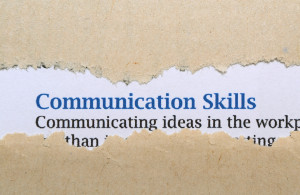English Speaking Skills- Make a Goal – Use a Visual Cue
English Speaking Skills- Keep Your Vision In Front of You
Do you have a dream? A dream is bigger than a goal. Here’s a tip- put your dream vision in front of you.
Simple idea- place a visual symbol of your dream in front of you. We move psychologically toward what we constantly see.
What you are want is not “kind of good” communication, At a minimum, you want English speech communication free of “What? What did you say?”
The purpose of your dream for communication is to make connection with people in daily life, at work, or in school with clear, easy to understand speaking voice, and easy to cognitively understand information message. Add to that an English speaking voice which communicates emotion and is pleasing to the ear.
How do you keep your vision of your dream in front of you?
Find a picture of someone you admire – a relative, friend, teacher, broadcaster, or famous person. Or find a photo from a newspaper, magazine or online of people happily communicating. Put it on your bathroom mirror or over your desk— any place you notice everyday.
This visual reminder will help you move toward what you see. Then when you have choices— of talking or not talking, engaging in conversation or remaining quiet, volunteering to answer a question in a small or large group— then you’ll remember the visual aid picture/photo. And you’ll take the extra effort to do clear articulation– leveled-up clear talk mode or careful leveled-up clear talk mode. You’ll do accurate word syllable accent stress. And if you have learned the skill– voice inflection in utterances or sentences which communicates emotion.
hat visual photo or picture will inspire you to do direct practice or more preparation for English speech a few minutes longer before your presentation , meeting or even a conversation. The frequent noticing of your picture or photo will inspire you to put extra effort and focus whenever you take the opportunity to do deliberate practice of your best English speech communication skills in daily life. Your picture will remind you of your dream of better than good— to do great— English speech communication. And you will stride to that dream step by step. It gets easier, and then you will feel leaps. You’ll do what the most masterful people do– direct practice which is like doing homework on your own for your skill, and taking every opportunity to practice your articulation, diction, word syllable accent stress and voice inflection skills.
Or– your picture will inspire you to get more– more systematic, optimal learning for higher level English speech communication skills. Check out your local schools or Clear Talk Mastery — get the best instruction you can.
Be sure to watch our English Speech Tips videos and Accent Reduction Tip videos for more English pronunciation and accent reduction exercise.
Consider doing a CTM coached course– which now leads to yields and gains once thought impossible.
Or on a super limited budget, do systematic and fast acting learning each week using our subscription called ClearTalk Weekly, www.subscription.cleartalkmastery.com
Build Your Career- Do This (Asking Questions–#1 Skill for English Communication)
Right away–Do This to Boost Your Career and Influence——Ask Questions-
Experts report that increasing skills in asking questions and voice inflection are the two skills which fastest boost the careers of native-born speakers of English. If that is true for native-born speakers, it is true for nonnative-born speakers.
Asking questions builds relationship and rapport. Asking questions enables you to get the information you need and to clarify information. Asking questions gets involvement in communication and makes dialogue.
Sometimes international people and native born English speakers feel uncomfortable with asking questions. It’s not complicated! Two goals of asking questions are to get facts and to get opinions.
To get facts:
- “When did you begin work on the plan?”
- “How many employees are available for this task?”
- “What are the dimensions of the house?”
- “Which car reached the intersection first?”
Easiest and most direct question to get opinions:
What do you think of that?
Speech Tip #2
English Speech Tip 2: Short Vowels a, e
In this video Dr. Antonia Johnson shows how to pronounce the American English short vowel A and short vowel E.
Let us know what sounds or words you would like help with!
Speech Tip #1
English Speech Tip 1: l, r, e “clear”
In this video Dr. Antonia Johnson shows how to pronounce the American English word “clear.” She focuses on the English l, r, and long ē sounds.
Let us know what sounds or words you would like help with!









